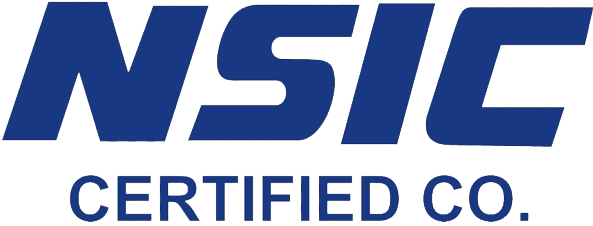Ever sat there staring at your crypto wallet waiting for a transaction to confirm? Yeah, me too. It’s frustrating as heck. Solana’s blazing-fast network changes that game entirely. Seriously, the speed is something else. But here’s the thing — speed alone isn’t the whole picture. Access and backup solutions are just as critical, especially for anyone deep into DeFi on Solana.
So, I was thinking about how many people overlook the backup part of their wallets. You might have the fastest transactions on the planet, but if you lose access, it’s all for nothing. That’s why, when I dug into alternative domain options for wallets like the phantom wallet, I realized the ecosystem is evolving faster than I expected.
Initially, I assumed all Solana wallets were pretty much the same — quick but basic. Nope. Some offer slick backup solutions that actually make you feel safer, even if you’re not a hardcore techie. And hey, that’s a relief because not everyone’s a crypto wizard, right?
Let me break down why access domains and backup methods really matter. You can have a wallet that’s lightning fast but if you can’t recover it easily, it’s almost useless. That part bugs me. It’s like owning a race car but having no spare tires.
Here’s the thing. Solana’s DeFi scene is booming because it’s not just about speed; it’s about reliability and user-friendly security. If you ever tried to recover your wallet from scratch, you know exactly what I mean.
Transaction speed on Solana is no joke. Blocks settle in under a second most of the time — crazy fast compared to Ethereum’s often painfully slow confirmations. This speed fuels DeFi apps where timing is everything, like yield farming or flash loans. But fast doesn’t mean flawless. Sometimes, network congestion or bugs throw a wrench in the works, reminding you that it’s still early days.
My instinct said, “Is this too good to be true?” But the more I tested, the more I realized Solana’s infrastructure is surprisingly robust. Of course, that doesn’t mean you should put all your eggs in one basket. Diversifying your wallets and backup methods is smart.
Oh, and by the way, domain alternatives for wallets like Phantom are becoming a hot topic. People want simpler, more memorable domains instead of those long, cryptic addresses. This is more than just convenience—it’s about reducing user error, which is the weakest link in crypto security.
Check this out—some new domain systems integrate directly with wallets, meaning you can send tokens using easy-to-remember names without sacrificing security. That’s a neat trick that helps onboard newbies and keeps things slick for veterans.

Backing up your wallet is where things get real. I’m biased, but I think the phantom wallet does a solid job here. It supports multiple recovery options, from seed phrases to hardware wallets, which matters when stuff hits the fan.
Initially, I thought a seed phrase was enough. Actually, wait—let me rephrase that… for casual users, yes, but if you’re juggling multiple wallets or managing big sums, you want more flexibility. Hardware wallets, multi-factor recovery, and even cloud-based encrypted backups can be lifesavers.
On one hand, the more complex the backup, the higher the security. Though actually, too much complexity can backfire if users get overwhelmed or careless. That’s why wallet providers strive for a balance—strong protection but intuitive interfaces.
Here’s what bugs me about some Solana wallets: they focus so much on speed and DeFi integration that they skimp on user education around backups. People lose funds because they don’t really understand how to secure their private keys or what recovery options they have. That’s a massive hole in the ecosystem.
Personal Experience with Solana Wallets and Backup Pitfalls
I remember when I first jumped into Solana DeFi. I was pumped about the negligible fees and near-instant trades. But then I made a rookie mistake—didn’t back up my wallet properly. Yeah, it was a facepalm moment. I lost access temporarily and had to jump through hoops to recover it, thankfully with help from support.
Since then, I switched to wallets that offer easier recovery flows. The phantom wallet stood out because it lets you add extra layers of backup without drowning in tech jargon. That kind of practical usability is rare. You don’t want to be fiddling with command lines when you’re trying to move funds quickly.
Something else I noticed: users often underestimate how important domain names are for wallet addresses. When you’re sending crypto dozens of times daily, a typo can cost you dearly. Alternative domains that are short and human-readable reduce that risk sharply.
It’s funny how a tiny detail like domain naming can make or break the user experience. We focus so much on speed and fees that easy-to-use domains sometimes get overlooked. But honestly, I think this will be a bigger deal as Solana’s DeFi ecosystem grows.
Wow! If you haven’t checked out these newer wallet domain options, you should. They’re not just a gimmick—they actually help prevent mistakes and make crypto feel less intimidating.
Now, about transaction speed—while Solana is fast, network hiccups do happen. Sometimes it feels like you’re racing a bullet train but suddenly hit a red light. These rare slowdowns can cause cascading problems, especially in DeFi where timing is crucial.
But here’s the kicker: speed without reliable backup options is a recipe for disaster. Imagine executing a high-stakes trade and then losing access to your wallet because your backup was incomplete. Nightmare, right?
So, my takeaway? Pick wallets that balance speed with solid, user-friendly backup solutions. Don’t just chase the fastest transactions—think about what happens if you can’t get back in your wallet tomorrow.
Tools like the phantom wallet are leading in this space, offering both rapid access and robust recovery features. I’m not saying it’s perfect—no wallet is—but it’s a step in the right direction.
Hmm… I’m curious how these backup solutions will evolve. Will we see biometrics linked to wallets or cloud backups that don’t compromise privacy? Only time will tell, but it’s an exciting frontier.
Final Thoughts: The Balancing Act of Speed, Access, and Security
So yeah, Solana’s speed is a game-changer, no doubt. But that’s just the tip of the iceberg. Access domains and backup solutions are equally vital for anyone serious about DeFi. They prevent heartbreak and keep your crypto journey smooth.
Honestly, I’m not 100% sure where this all will lead, but wallets like the phantom wallet give me hope. They combine usability with security in a way that feels natural, not forced.
Remember, it’s not just about how fast you can move your funds, but how confidently you can do it without fearing you’ll lose everything tomorrow. That peace of mind? Priceless.
Anyway, keep your backups close, choose your wallet domains wisely, and enjoy the ride. Solana’s got the speed, now it’s up to us to handle the rest with care.










